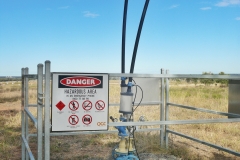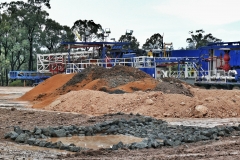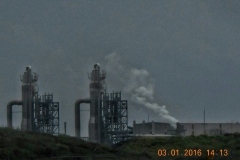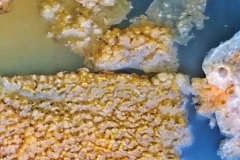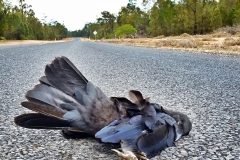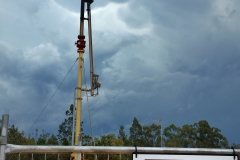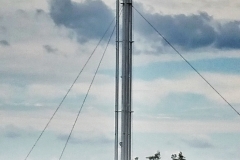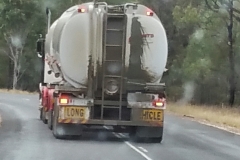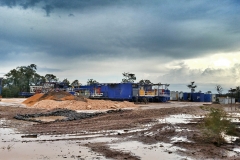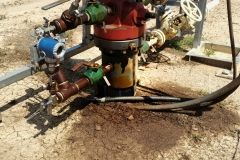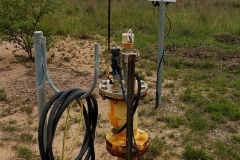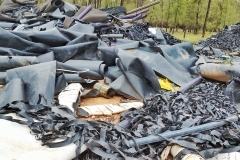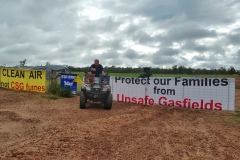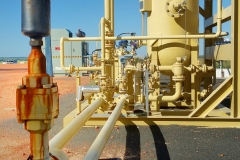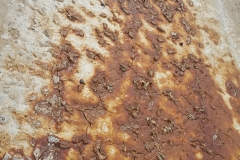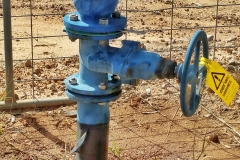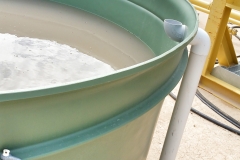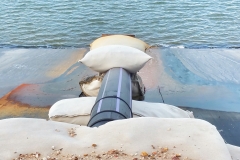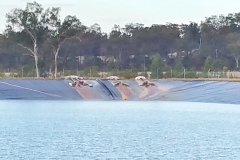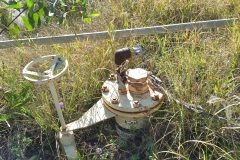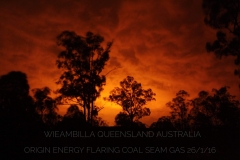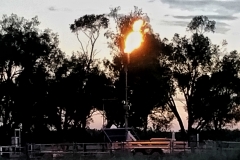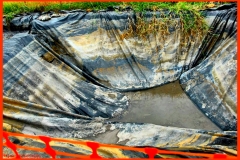The International Permanent Peoples’ Tribunal Session on Human Rights, Fracking and Climate Change has concluded.
The written submission to the PPT based on the evidence hosted on this web site can be viewed below.
You can view the Tribunal in its entirety by going to the following Spring Creek Project youtube channel.
Where to from here?
- The judgement from the tribunal will be provided as soon as possible
- We the people, will need to take the tools that this judgement will provide us and use them to the maximum benefit
- The conveners of the Australian contribution will be available to provide any interested groups with a summary of the project, its outcomes and its application
- the informal group of people involved in convening the International Tribunal will continue to develop this new network in a hope to leverage and develop our individual knowledge, experience and activities
- This web page will continue to accept and publish witness testimony regarding the impacts of this devastating industry.
- This web page will develop into a repository of information and data with particular regard to developing the Human Rights aspect and its associated tools for our collective fight.
_________________________________________
During the week of May 14-18, 2018, the Permanent Peoples’ Tribunal Session on the Human Rights Impacts of Fracking will ask its judges to apply the standards of international human rights law to six subcases addressing the experiences of individuals and communities around the world who are being impacted by unconventional oil and gas extraction and usage, and by its resulting climate effects
This web site represents the contribution that Australia will be making to this very significant human rights and environmental issue regarding unconventional gas exploitation and generation.
The unconventional gas industry has hit Australia like a plague in the past decade causing many serious health and environmental issues for Australia. These issues are not being competently or adequately addressed by the Australian government and despite the voluminous and overwhelming evidence as to the harms of unconventional gas, the legal system appears unable to properly protect impacted communities.
Overview of the Issue:
Producing unconventional gas (UG) is an intensive industrial process, with a large and dense physical and environmental footprint. Tens of thousands of wells are needed (so new wells are constantly being drilled) and techniques such as hydraulic fracturing are usually required to boost the flow of gas from existing wells. The scale of development has major implications for local communities, land use and ownership, atmospheric contamination and water resources use, and water ownership.
It is this industrialisation of the unconventional gas industry on the Western Downs in Queensland Australia currently, and potentially for many other parts of Australia and globally. The industry’s significant impacts on human rights that is the issue we wish to bring to your attention and to the attention of the Tribunal.
Below is an outline of the ways in which this industry has impacted human rights with regard to:
- Human Physical and Psychological Health
- Environmental, Ecosystem, Hydrologic and Seismicity Impacts
- Climate Impacts
- Fuels infrastructure (pipelines, compressor stations, storage facilities, export facilities, etc)
- Lack of Public Participation
- Social and Cultural Costs
The government licensing of the industry amounts to an enormous transfer of assets from public to private hands resulting in a major loss of land value and a transfer of inter-generational wealth from farming families to multinational mining companies.
The industrialisation of the rural landscape brought about by unconventional gas activities brings serious hazards, including air pollution, contamination of surface and groundwater and risks to associated agricultural industries that have not been adequately addressed. Greenhouse-gas emissions both at the point of production and throughout the entire UG supply chain is significant.
The scale and pace of this industrialisation of the rural Murray-Darling Basin (MDB) landscape, is without precedent in Australian history. Given its geographical extent and extraction density, the UG industry in the Downs is a huge ‘gas refinery’, comprised of a vast pressurised, leaking, below-ground ‘tank farm’, and a labyrinthine gas gathering and purifying network above-ground and laid across private property and state forests.
Industry has undergone rapid expansion, invested billions of dollars into development of unconventional gas resources without adequate research — and state governments have given approvals without adequate regulation and departments responsible for enforcement of the little regulation there is are understaffed and defer to the industry.
The avenues we previously had to comment on and submit against (amendments to approvals and permits) have been circumvented by changes to laws and policies. These changes restrict community participation in development decision-making, and limit the avenues families and community groups previously had to challenge the legal and merits base of decisions. Some of these families and communities are in remote locations that feel the brunt of impacts, but are poorly served with human rights and environmental advocates, community based lawyers and advisers. We are not in the focus of national based media, and consistently fail to get our messages to the general (urban based) community, who benefit muchly from the extraction of resources.
There is a lack of information on the chemicals used and wastes produced, insufficient data on cumulative health impacts, and a lack of comprehensive environmental monitoring. In these circumstances, with insufficient evidence to ensure safety, the precautionary principle should apply. This is essential given the threat of serious and irreversible harms to human and environmental health.
The very nature of the industry requires that “political, legal and fiscal primacy of subterranean mineral and fossil fuel resources [must take precedence] over terrestrial, ‘life-sustaining’, environments and catchments and their inhabitants[and] over good, sustainable groundwater resources.” Impacts on basic human rights are inevitable. Added to this is the seriously flawed assumption by the government and industry that the public benefit of extracting minerals is greater than any costs that may arise from doing so.
The very nature of this contention between the government/industry and the humans expected to live amongst it and its consequences is evidence in itself that there is a deficit of consideration to the rights of the humans and environment.
The Permanent Peoples’ Tribunal
It is for these reasons and the unanswered concerns laid upon the deaf ears of state and federal governments by hundreds of Australians that we (Western Downs and Wider Unconventional Gas Group – WDWUGG) are hosting this opportunity for Australians to contribute to the international event.
The Australian session will be hosted on this website and will inform the International Permanent Peoples’ Tribunal Session on the Human Rights Impacts of Unconventional Gas to be held in the in May 2018.
The very fact that the Permanent Peoples’ Tribunal has elected to conduct a Session on the Human Rights Impacts of Unconventional Gas underscores the serious human rights concerns associated with the relentless pursuit of unconventional gas.
Invitation to You
We would like to invite you to become involved in this landmark action by contributing your testimony to this website.
To become involved, please sign up via the registration page.
For ideas on how to create your testimony for the tribunal, please see this helpful post.
References:
- National Toxics Network: Unconventional Gas Exploration and Production: Human Health Impacts and Environmental Legacy November 2015
- World Energy Outlook: Golden Rules for Golden Age of
- Unconventional Gas Mining Inquiry 2016: Submission 17 John Polglase
- Submission Unconventional Gas Mining Inquiry 2016: Tracey Anton – Community Over Mining Gippsland
- DEA: The Health Factor
- Hambleton, S. (2013). AMA Calls for Coal Seam Gas Health Checks, Australian Medical Association Press Release, 23 May 2013. https://ama.com.au/media/ama-calls-coal-seam-gashealth-checks.

